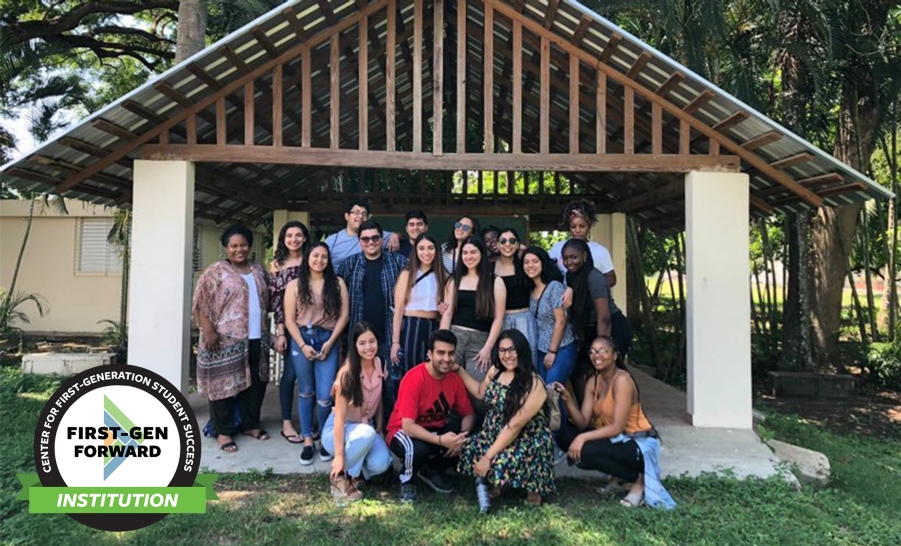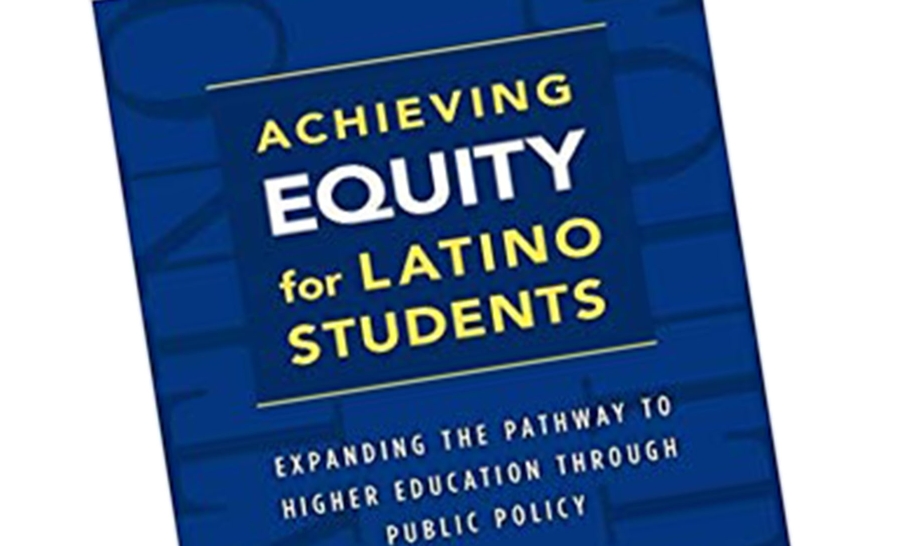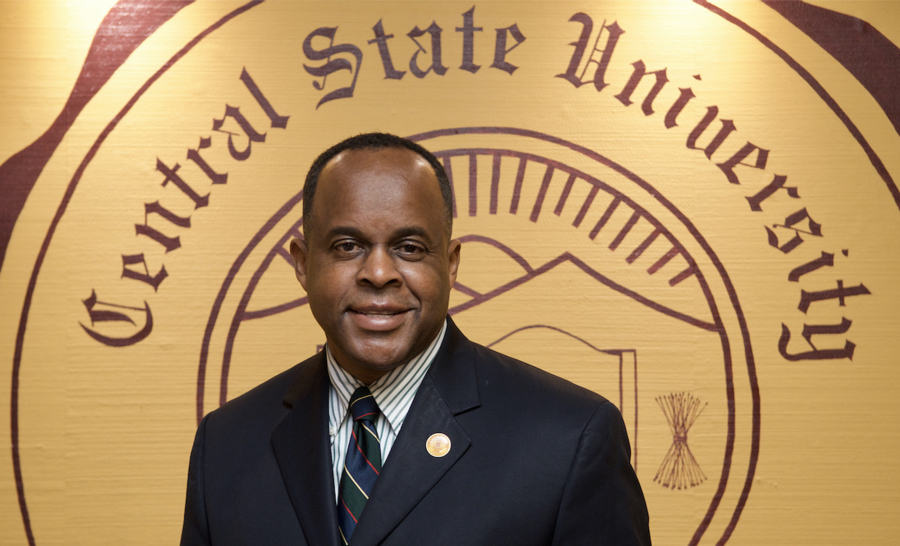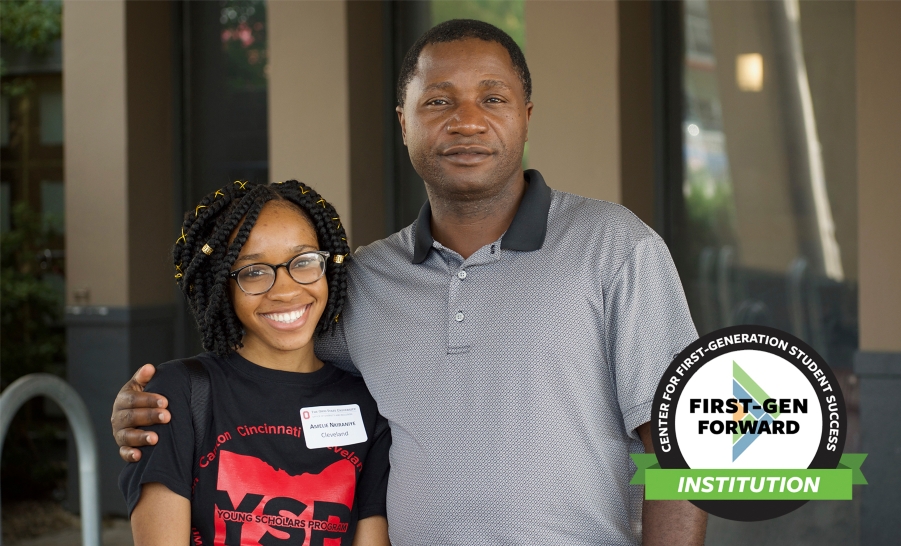A Four-Year Snapshot of Investing in First-generation and Low-Income Students
Shaya Gregory Poku, M.A., M.S., Victor Trepanier, & Ashley Valentine, Wheaton College / FirstGen Forward / February 16, 2022
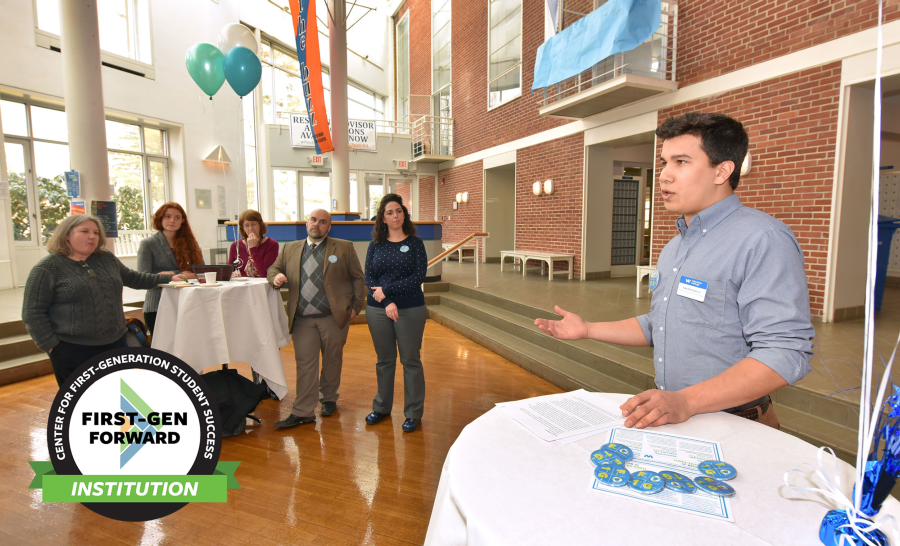
The motto of Wheaton College in Norton, Massachusetts, is "That they may have life, and may have it abundantly." Over the past several years, the college has been thinking deeply about what it means for this motto to apply equally to our first-generation and low-income students. They comprise over 20% of Wheaton’s student population.
The past four-years have involved an intensive effort by the college to rethink its support system for first-generation students.
The class that will graduate from Wheaton in 2022 is special. They were the first class to get a chance to participate in Wheaton’s new Brave, Bold & First Early Arrival program for first-generation students. They will graduate this spring having had access to the college’s new Marjorie Judith McNamara Bland ’62 Emergency Discretionary Endowed Fund, which addresses the unexpected costs in higher education.
Much of this work to increase resources for first-generation students has been driven by the college’s First-Generation and Low-Income Task Force with support from Campus Compact AmeriCorps members working to build capacity for Wheaton’s first-gen student success projects. While the task force has played a pivotal role, it is critical to mention the initiative of Wheaton’s first-generation and low-income students. “Students do the work themselves to speak out when they see issues challenging their conditions,” said Wheaton senior student Victor Trepanier.
Non-first-generation and low-income students (and staff and faculty) [need] to become more invested in these conversations. We need a campus climate of empathy, and a drive to help each other, even when we're not directly affected.
Wheaton has worked to build a sense of community and visibility for first-generation students through a living, learning community for first-year first-generation students; a theme house for junior and senior first-generation students; and campus-wide programming like Focus on First-Gen Week.
Wheaton has also been thoughtful about systemic barriers. Thanks to planning from student leaders and the task force, Wheaton hosted a campus read of Dr. Anthony Abraham Jack’s book, The Privileged Poor: How Elite Colleges Are Failing Disadvantaged Students, followed by a mainstage campus lecture by Dr. Jack and a series of stakeholder discussions with him and students, faculty, and staff.
Dr. Jack’s visit inspired deeper conversations about the “hidden curriculum,” the unwritten expectations and norms of college, and how Wheaton can be more proactive in demystifying those expectations. The First-Generation and Low-Income Task Force partnered with Academic Advising; the Center for Collaborative Teaching and Learning; and Diversity, Equity and Access Leadership (DEAL) to lead workshops: one for faculty and one for staff.
The workshops were informed by independent focus groups and surveys given to first-generation and low-income college students at Wheaton. Their direct voices and experiences were brought into conversation with national statistics and theory to amplify the ways that higher education has historically excluded first-generation students and what steps can be taken to improve not just our resources, but our campus culture.
Those workshops and discussions translated into a high-gear effort to address barriers, like access to food during school breaks and the creation of a video to encourage a student culture of reaching out and asking for help when it's needed.
While the task force has played a pivotal role, it is critical to mention the initiative of Wheaton’s first-generation and low-income students.
There is ample work that remains to be done. “I think that one big thing on campus that needs to change is for non-first-generation and low-income students (and staff and faculty) to become more invested in these conversations. We need a campus climate of empathy, and a drive to help each other, even when we're not directly affected,” says Trepanier.
Senior student leader, Ashley Valentine, who has served as a first-generation student support intern, adds, "Supporting first-gen and low-income students looks like early peer connection in order to have easier relation to peers with similar identities and access to supportive resources at Wheaton, which should be primarily presented by administration holding a range of paralleling identities."
Wheaton has been designated as a First-Gen Forward Institution, which recognizes the college's commitment to first-generation student success. Our ability to connect with a network of other campuses that are also invested in looking at best practices to support the success of first-generation and low-income students has been a pivotal step. It will not be Wheaton’s last.
Wheaton will continue its efforts to integrate best practices on providing a transformative liberal arts education to generations of students. We are working to become a premier destination for talented first-generation and low-income students (FGLI) to excel.
For more information on Wheaton College’s approach, please visit their website here.
